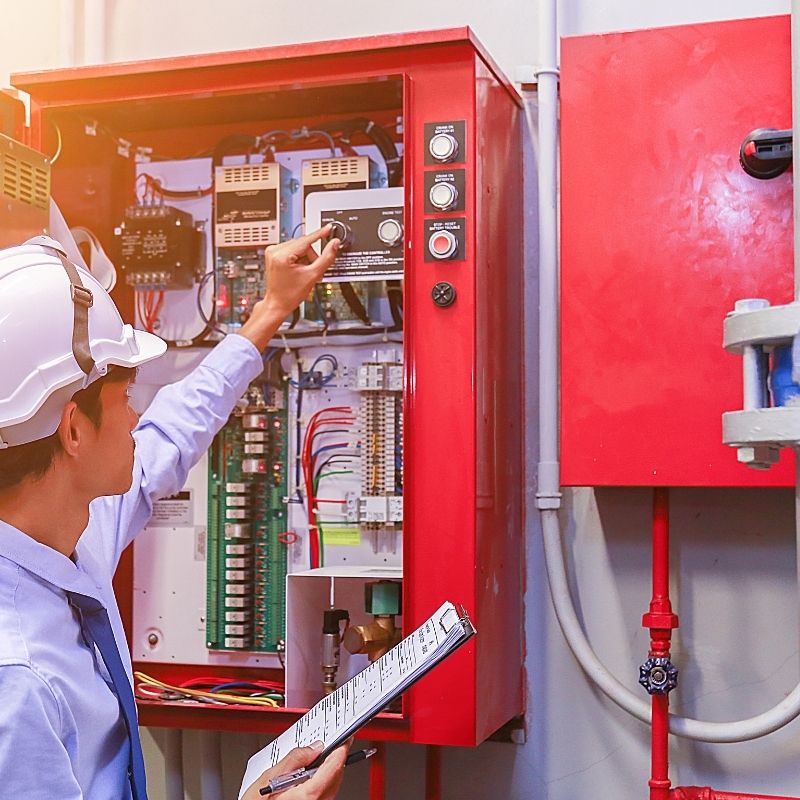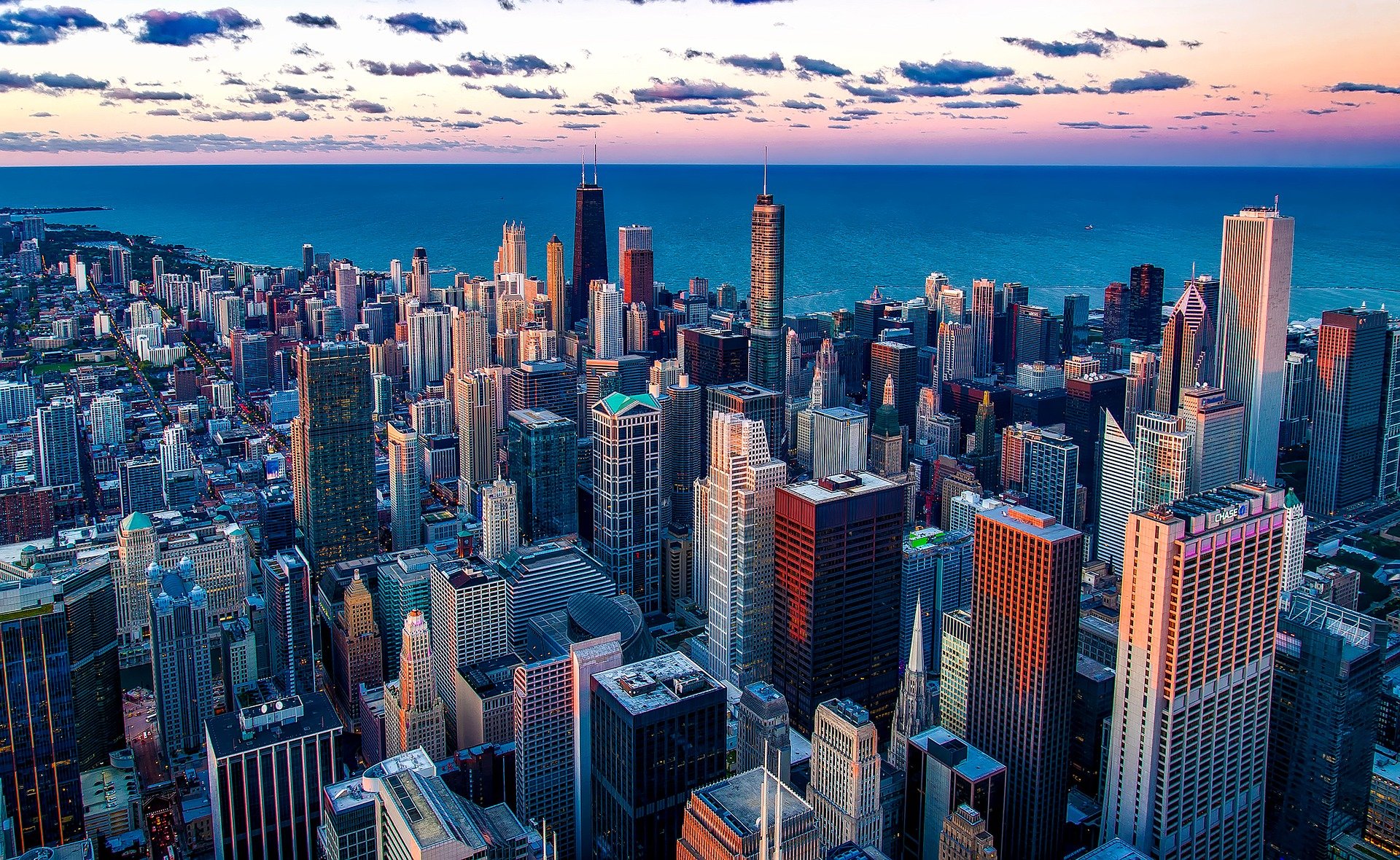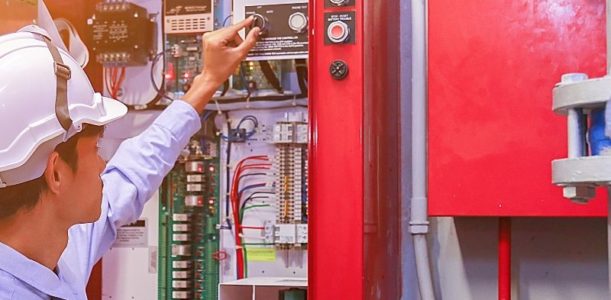
Commercial fire alarm systems are the most critical piece of protecting a company’s most important assets and saving lives. Fire alarm systems play the most significant role in how well your property and the building is protected in a fire emergency and can be the difference between life and death for occupants. It is necessary to work with a licensed, professional fire alarm system designer to ensure that your commercial property is protected and compliant to all fire safety and building regulations.
Get A Quote
Commercial business owners cannot go down to the nearest big box store and buy a couple of smoke detectors like you can for your home. Having a certified professional on board could mean the difference between saving your business or experiencing huge losses, including loss of life.
Commercial Fire Alarm Design is Complex
Many important considerations go into designing a commercial fire alarm system, which involves creating an elaborate system of wiring, equipment, and dozens of additional components. Proper placement of detection devices, initiating and notification devices is required. Additional fire safety features such as communication devices, mass notification systems, and sprinkler systems may also be integrated with your total fire, life, and safety system.
Additionally, fire alarm systems are governed by a rigid collection of codes and rules from local, state, and federal building and safety regulations designed to keep property and, most importantly, people safe.
Commercial fire alarm system design should only be performed by an experienced fire alarm system designer with in-depth knowledge of all code regulations. A professional fire alarm system designer will also consider how many floors the facility has, its construction materials, its composition, the number of exits, and heat sources. A fire alarm design engineer will consider these many aspects and more.
Regulations Govern Commercial Fire Alarm System Design
Regulations governing fire alarm systems vary from state to state, however, many are modeled after NFPA 72, which details the performance, location, application, maintenance, testing, and inspection of fire alarm systems. The professional designer will also be able to interface with the Authorities Having Jurisdiction (AHJ), usually the fire department, to see what control they have over the process.
In addition to codes and regulations, there are several other conditions that must be considered when designing a fire alarm system. These include insurance company requirements and unique building codes beyond the fire alarm codes. Additional considerations may apply to older buildings, such as the Americans with Disabilities Act (ADA). An experienced fire alarm system designer will also consider your unique building architecture and business operations to go above and beyond code compliance to provide maximum safety and protection.
Commercial Fire Alarm Design: Considerations Beyond Saving Lives
Keeping people safe is always the primary goal of a commercial fire alarm system, although additional considerations benefit business owners. Business owners and building managers have other requirements that a professional fire alarm system designer can integrate into the final design. These goals could include:
- Ease of maintenance
- Fewer false alarms
- Longevity of the system
- Ability to accommodate future changes
Fire Alarm Technology Continually Evolves
Building managers have many choices regarding modern technology that could help them meet their fire and life safety objectives. Wireless fire detection permits monitoring in areas that previously were prohibitively expensive or physically impractical to monitor.
- Remote monitoring and control methods now provide extremely early fire detection and the ability to locate where in the facility the fire is taking place so firefighters can arrive fast and at a pinpointed location.
- Sensors can tell smoke and fire from other obstructing indicators, such as dust and steam, which can trip a false alarm.
- Some detection systems now can give maintenance alerts concerning specific smoke detectors saving time and money hunting a problem down.
When dealing with a commercial building containing property and people, facility managers should cut no corners in selecting a professional to design a commercial fire alarm system. In case of an emergency, the money invested will be well worth it.
HRSS is a top designer of commercial fire alarm systems, with engineers knowledgeable of proper placement of all detection, initiation, and notification devices for code compliance. Our experienced fire safety engineers utilize AutoCAD systems and work closely with all interested parties throughout the planning and design processes. Contact us to learn more and to ensure that your fire alarm system design addresses all essential considerations.



